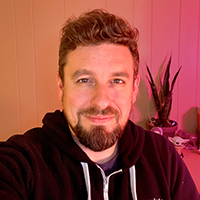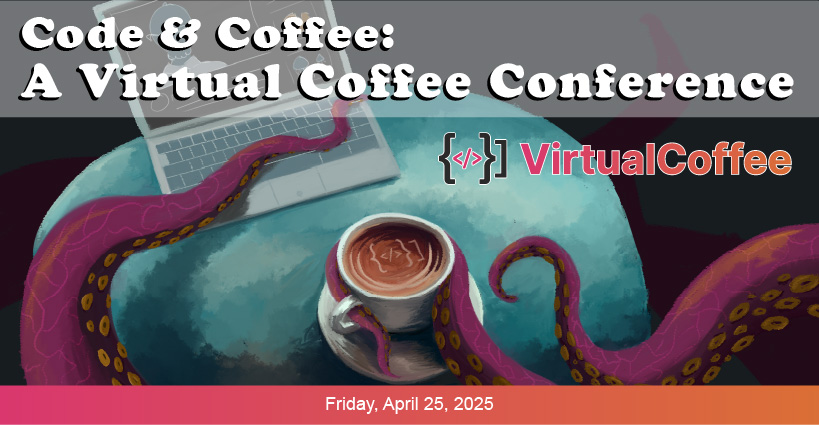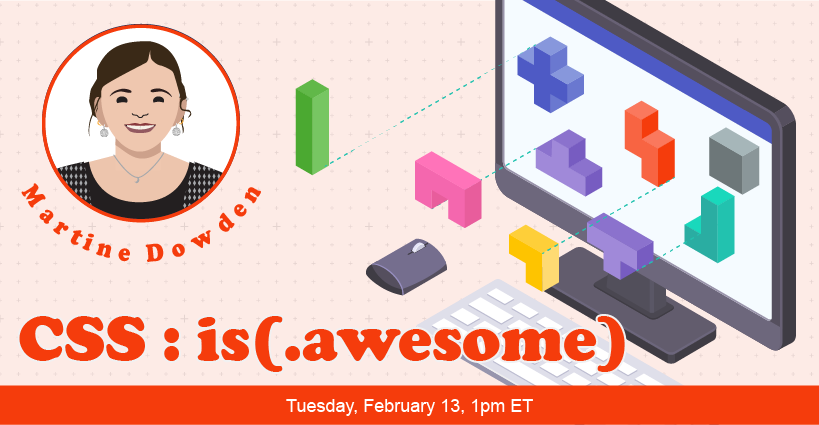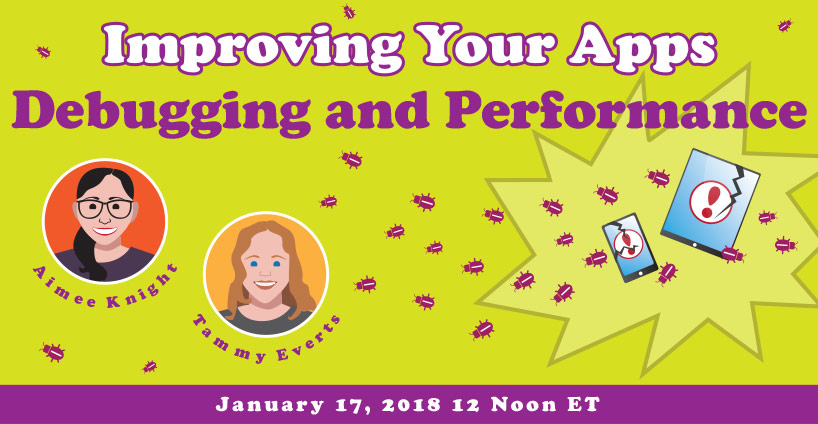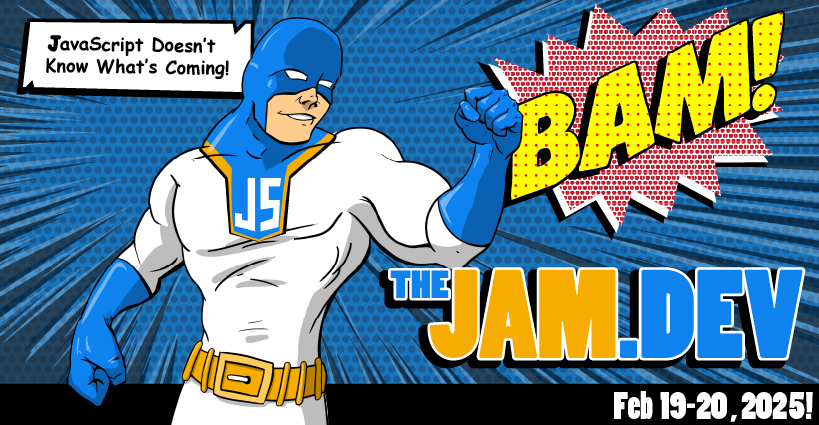Dan Ott: [00:00:00] yeah. So this is my talk. I’m Dan. I am from Cleveland. I’ve been a developer for a long time, and I’m not gonna go. Deep into bio because most of this talk is about that. So I think be, had covered it all. Yeah, this talk turned into sort of a introspective for me personally and I found it valuable.
So hopefully some other people can find at least a little bit of value or entertainment from it. So yeah, so how it all started, right? So flash sites and table layouts. So I grew up in Lakewood, Ohio, and I started making flash sites for my band. So this is my band. It’s called Searching for Words.
That’s me. It’s looking, I don’t know, emo over there on the side. And yeah, my first thing on the internet was aside from maybe some Geocity stuff, was this Flash site. So flash was Macromedia flash. I think they were owned by, I. Themselves and then Macromedia bought them and, good, I’m already losing my voice.
That’s great. I just started and yeah, and so Flash was a kind of interesting technology. You could, it is. There’s a lot of drag and drop you [00:01:00] could code, but it was more of a way to. Visually make things. And you used to be able to, you’d see these a lot, you entire sites built in flash. And so this was me messing around after school, things like that.
And I was writing poetry at the time and, taking very artistic pictures. I think some of that is still around as well. I. I graduated high school, so I, sorry, I graduated high school in so this was 2001. I had an honors diploma and a c average. If you want to know how I pulled that one off, I can explain that later.
I went to college and, I was initially majored in computer science. I moved into the Creative Arts house and found it. A very good set of friends, very close friends and lifelong friends. Turns out and changed my major to English, which completely screwed up all of my requirements ‘cause computer science and English, if you can imagine, have a bunch of different requirements.
So I had to go back for a fifth year in college and. That was really boring ‘cause it was all a bunch of intro level things and I stopped gonna [00:02:00] classes and then dropped out and started working on websites full time. And this was not like a tactical decision, it was more of a No, it just happened.
But it led directly to where we are now. I did graduate high school eventually a few years later. Mostly as a Mother’s Day present for my mom. But that’s how it was. Back in that time front end development once we moved past flashlights, right? So front end development at that time was based mostly on table layouts.
And so that was in the ta title of my talk. If you haven’t come across this is a way to build websites. It. It still technically works, but you would get a Photoshop file and this is just a screenshot of some random thing I found online, so I probably can’t zoom in very much on it, but you’d get a Photoshop file and then slice a bunch of these pictures and build this into an H TM L table, right?
That the, like with the table markup it was. Really a huge pain. But it did work and it was the best that anybody knew. Everybody did it this way for a very long time. And and that’s what I was doing as [00:03:00] well. So during college, I made a few more sites. I made a site to host my poetry and awesome pictures.
Which is still a thing. I haven’t touched it since, I don’t know, 2000. Four or five. Here, like a little blog update. So 2005. This is I’ll send you if you’re really interested. I can share the link later. But this still exists and if you view source on this, you’ll see a bunch of tables and a bunch of I frames.
And yeah, it was all the rage back then. And moving past that what I was doing for the most part after school was working for the a company called the Lakewood Observer. And so this is a local newspaper that, it’s locally owned and community written, is like a lot of volunteers.
And I worked for $10 an hour building their entire site and their entire platform. It turned out this is all PHP and my sql. This is still very close to what I built and this is still live, so this is like what observer.com. And I spent, I don’t know, a few years working just on this making $10 an hour and, kind of living the dream, [00:04:00] living in a house with three of my friends. It was a big mess. And we all had fun, but I taught myself how to do all this stuff while while I was doing that and I. Along with that, I was pretty much just in a cave by myself, right? So I, the office that I worked out of, it’s where they also stored a bunch of back issue newspapers.
So there’s piles and piles of newspaper everywhere, and a little desk and a little computer. And I sat there in my cave and built this whole thing, and it was, it was very valuable. It was very cool. But I, I eventually found myself. Not knowing all the best ways and wanting to meet some new people.
And getting closer to, so around 2007 I became aware of the web standards movement. And so this is a movement. Around that time in 2007, it was about, it was really. Going strong, lots of books had been written. It was led by Eric Meyer and Jeffrey Seldman and a bunch of other people like that.
And what that was about is using html, the way it is, supposed to be used instead of tables to build websites. And [00:05:00] along with that, I found a meetup on like meetup.com called the Cleveland Web Standards Association. And so this was one of our first few meetups. We met in a hotel for for months and months, and so you could see us here, sitting here at the stable. Eventually we would stop ordering things. They’d kick us out and we’d hang out in the lobby. And we just talked about building websites and building, different techniques, all that stuff. You can actually see this is Eric Meyer right there.
He’s one of the. I suppose godfathers of CSS and modern HML and CSS design. So it was it was a really fun time started learning a ton more instantly by meeting, just meeting other people and being exposed to other people. 2007 is also when Twitter started, and, I joined Twitter pretty early and that used to be a very fun time.
Twitter is I suppose it’s not even called Twitter anymore, i’ve been trying to find that experience again. I, and it’s been tough, but this is also along the lines of finding your community or finding some people. And then later in 2007, I entered a contest called CSS Off.
And this is just like a [00:06:00] contest. I think you. If you won, you could get $20 or donate $50 to charity or something like that. And what this was they would give you a Photoshop file. And this is, so this is a screen, this is like a screenshot of the Photoshop file, right? So you get this design and then build overnight, build, just an H-M-L-N-C-S-S page, just a single page that is this exact page as close as you can get and try to do it, with all the best practices and all the things like that. And it turns out I won and only 20 people like I. Maybe 20 people submitted entries. It wasn’t a huge thing, but it was big enough that somebody who was looking for somebody to fill that front end role found me from that.
And so that was Sprockets and Vince France. And so this is 2007, Vince France reached out to me ba basically on this, you heard my name from the contest and I started contracting with a company called Sprockets. They are based in Cleveland as well. And, that kind of kickstarted my entire career.
[00:07:00] Right? And so that was, moving into that zone instead of. Instead of table based designs and all that stuff, we would get, we’d still get Photoshop files and flat Photoshop files, and then we would build nice h Tm L and CSS. And this was my role here was this HTML and CSS. And so I’d get a design from somebody else, build some templates and some things to use, and then send it over the wall to the backend developers that would put this into whatever PHP backend framework they were using.
And we would go from there. And it was a pretty good time. I kept meeting with the CWSA, I kept en engaging in Twitter and I don’t know, I it was a fun time, right? And so I got pretty good at it. And eventually things start to, I don’t know, things start to roll. So this is right around when lots, front end became much, much more complicated around this time, right?
Sorry, lemme back up a second. So I I switched the order of this slide like at last second. I went backwards, but so from 2007 [00:08:00] to 2024, I was contracting full time. And across that time I worked with, were lots of different clients, hundreds of projects. And also during that time, the industry changed, right?
Like I was saying you start to get more and more need for JavaScript and. Fancy components, things like that. And so you start getting tools like Grunt, which I don’t know if anybody remembers, but Grunt was awesome. I actually still use Grunt at a couple of production sites right now even though it’s not been supported for a long time.
So different ways of building CSS like SaaS. Then you get into React and then talking to APIs and TypeScript and all this stuff, right? So during this time, this is when the, the, I don’t know, the ecosystem of front end development started to change drastically. My responsibilities as a front end developer and everybody’s responsibilities, changed a lot during that time too.
Also during that time some life stuff started to happen, right? These two little nuggets here. So this is the older one is Bennett and that, gona Samson. So this was 2016. Bennett was born, 2018, Samson was born. [00:09:00] And, they’re great and everything was like wonderful with them. But not but along with that, and along with my sort of tendencies to.
Tend to isolate myself from things like that. A and the CWSA stopped meeting. I found myself in one of these like isolation slumps again, where I felt like I was working in a cave. I wasn’t working with any other front. I was the only front end developer with sprockets, and I was working on other clients too, but doing pretty much this, the whole thing about myself.
And finally it started like I, I started feeling like I wanted to meet some other people, maybe work some with other people, things like that. And so that, working into this sort of naturally went into a new phase. So I in 2019 co-founded the Cleveland React Meetup which met for a while, and that was really great.
And then I was also along with that is when you’re a contracting, one of the only ways to grow, you could keep increasing your rate, up to at some point, right? But the. [00:10:00] The, one of the other ways to do that is grow the size of your company, when you’re contracting, you are your own company.
And so I decided I would like to find a sub subcontractor. And Becca mentioned this before, but I came across this tweet that she tweeted out and I checked out her portfolio, checked out, I don’t know her other, there are other stuff on Twitter and reach out to her based basically on this the reputation of Flatiron and her portfolio and where she was in her career.
I wanted somebody that was early career to engage in the mentoring side of it as well as the work side of it. And so yeah, that was 29, 20 19 in June. So in June of 2019, and then in 2020 a little thing called Covid came along. I don’t know if anybody remembers that. It was not a big deal for everybody.
But that crushed a lot of things, right? So it killed the React meetup that I put together. And unfortunately, Becca always says that I fired her. I did not fire her. I just. My [00:11:00] work all dried up during the Covid Pandemic when everything was shut down. And so because my work was her work, I had to stop working with her for a little bit.
The golden lining in that is another Becca tweet, which should be in the Hall of Fame of Tweets. And this was Becca’s first virtual coffee. I dunno, for idea I don’t know the inception of virtual coffee, right? Is Becca just wanting to meet with people having the same desires that, that I did.
You could see in this week she’s talking about job searching, but which has always been a strong topic in virtual coffee. But the. The part of it that I related to very much was, was just connecting with people. And I embarrassingly did not come to the first one, but I think I started joining pretty soon after that.
And virtual coffee was a turning point in my career. It. Connected me with way more people than an in-person meetup ever will. Just because of the remoteness of it or the, I don’t know if remoteness is the right term, the. Ability to [00:12:00] connect with people all over the world and started making some amazing friends.
And oh yeah, here’s this. Sorry, I had this slide in here. This was the original virtual coffee logo. Shout out Karen, who I’m pretty sure put that one together. And yeah, it was a really good time along with the subcontractors, so stepping back I worked with Becca and I wanted to do the mentoring thing.
Subcontracting team was a lot of work that I didn’t, I. Quite expect I think Becca can speak to this a little bit as well, but it was a little bumpy for a little bit. Trying to put things together in ways that people can, work on them. Translating things from my brain into the, into the written word, into ways that people can understand anything.
And and yeah. And so that was why it was such a big bummer, because we had really just started hitting our stride when Covid hit. But luckily again, the it turned into virtual coffee. I guess I was gonna say, I’m okay with it. I don’t know if I go that far. It was it was an interesting time.
The stack overfloweth, I sorry, I’m just like always tickling myself with my titles. So during the phase, so [00:13:00] during the phase after that, so this is, 2020 post, post total shutdown. 2020 onto now. The, I was talking about how the ecosystem started to. Explode and I the last five years, it is like the velocity of that has increased by several orders of magnitude, I would say.
Now you have full stack frameworks and you know much more things to deal with. And along with that, I was taking on a bigger role with work, right? And so I. I started working with Becca again she can’t say that I fired her for forever. And worked with different subcontract subcontractors over that time.
And also took on just more and more design and decision making roles with sprockets. And you run into this spot where things start becoming more stressful, right? Make mistakes can loom larger. The stakes are higher, right? And, like the high level thinking and planning that you need to do.
And I guess when I say high level, I don’t mean oh, I’m so awesome. [00:14:00] Bird’s eye view, right? That kind of thinking is very fun, but it can be very stressful as well. And I’ve also found that it’s a little bit harder in that, in that role to see your accomplishments, right? So it’s, it.
Part of that is because there’s not usually sometimes you have a big release or whatever, but lots of times it is small increments over time. And yes, you’ve planned for that time, but it’s not like a, it is not as often of a thing where I would pump out an HTML file on some CSS and send it over and then send it being, see it being used like a week later.
A little bit less of that, but. I was able to find some fulfillment, both between the work and the community, meeting with other people in those positions, things like that. Really helped me get through that phase. At the end of an era was, so in last year, 2024, around this time, actually a year ago, I took a full-time job with sprockets and that hasn’t changed, my life drastically.
I have to do a little bit less bookkeeping, which is really nice. And hopefully this will be the last April that I have [00:15:00] to deal with contracting taxes, which is always a nightmare. But it I was doing the kind of thinking that I felt uncomfortable with, honestly being a contractor, doing making decisions for sprockets, for that would affect their history and their their reputation and everything like that.
And so it just seemed like the right fit for all concerned. And I did think about it. It’s still weird sometimes thinking about it. But it was a big change for me. And and yeah, I mean I think it’s one year in it’s been largely positive. So if I want to think about some lessons that I have put, so I’m sorry.
So I meant to put a slide in here that was just like a pause. That was like my work career, life story and. Going through this, I promised some lessons and things like that in the description, and I thought I probably should actually have some lessons that, people can take away from this.
And these are also while I was writing this talk found myself, wishing that I was following these lessons a little bit more, and so I’m going to take this time to, try to incorporate some of this into my life, or [00:16:00] reincorporate it or refocus on it if I can. So the first one is make time for the hard stuff.
And what I mean by that is there’s always going to be things that you can do that come more easily or more fun or more fulfilling things that you jump towards without really hesitation, without procrastination, right? And then there’s things that don’t, that are harder, but maybe be that might be, still important, right? So for me, that’s generally things to do with people, honestly. Writing well thought out, docs, writing issues, writing templates not templates writing poll requests, descriptions. Communicating in lots of different ways. It’s a different part of my brain and my, my is the kind of thing that my brain just runs away from lots of times.
And I’ve found in times where I’ve been successful with this, it’s because I set aside time to do just those things, right? I can’t be in the coding mindset when I need to be writing. And so the way that has worked for me is. Setting aside a specific time where I can context [00:17:00] switch all the way and not be, my brain isn’t, tell my brain this isn’t coding time, this isn’t, fun puzzle time.
This is let’s do some really important stuff so that we can have more time in the future to work on the fun stuff. Along with this is. Taking the time to do some personal work like blogging or streaming like Nick does or anything like that. I think that it’s so valuable and I always regret it.
If you look at my blog, it’s just like years and years of, three or four posts and then a year or two gap, and then a post that says I guess I forgot about blogging. I’m gonna do that more now in another couple year gap. But, it’s one of those things that is so fulfilling and important for historical pur purposes even.
If you’re planning to work for as long as I have in this industry, having a record of that kind of thing is has so many, possible like. Benefits. So I can’t say enough about that. Do things for fun, right? So this is maybe the opposite of it. I don’t know. If you find writing fun, then do that.
Write all the time. If [00:18:00] you find coding to be fun, which is where I land find some fun things to do and do them. That CSS off contest that I won, like literally changed my whole life and I didn’t. Ever think about it like that. I didn’t even think about it as being a portfolio piece or anything like that.
It just was fun for me. And so I engaged with it and it, the CSS battles that year does, that he hosts. Those are so fun and you really you never know what’s gonna come out of it. And if literally fun is the only thing that comes out of it, it’s still worth it. The next one is one that I’ve always, like this phrase has been thrown around a bunch of times, strong opinions, weekly held, and it’s, oh I don’t know it’s a cliche, but it is the way that I go through life or at least go through the, my career, my, my development life is I tend to, you either learn things or you come about things the hard way, and then you.
It’s okay. It is good to [00:19:00] have like strong opinions about that. If you don’t like tailwind, no. Why? No, why for yourself. But it’s okay to not like a thing. I would say the other side of that would be the weekly help part would be, it, once it’s like enough people start using some technology, it might be time to check it out and you can check it out.
By yourself. You don’t have to tell anybody. We won’t let anybody know that you’re doubting yourself. And, phrasing it like doubting yourself makes it sound like a negative. But I would say this is just like one of those things where, you know I think having a strong opinion can help you identify the ways that you think and then identify Sometimes if you have a strong ident, strong opinion about something, you might even get into a.
A discussion with somebody about it, and that will either help you, refine your. Refine your beliefs. Beliefs is a weird word, but refine your opinion on it. Or it might end up having you change your mind or maybe just send you down a road of looking something up like that.
Here’s a list. I started making this list. I didn’t, I know there’s way more things, the but list of [00:20:00] things that I was wrong about, right? QR codes. This one comes up all the time now because SPRA, I made a big deal about it in a meeting one time in Sprocket. It’s like maybe 10 years ago or something, way before QR codes became common, right?
I was like, QR codes are the dumbest thing in the world. Nobody’s ever going to pull out their phone and pull up an app and do this just to go to a link, a and now every time I suggest Hey, let’s just put a QR code there. Everybody always points it out. And I was wrong, QR codes, they’re good.
Tailwind. Yeah, I mentioned tailwind and I’ll probably, we might talk about it later, but tailwind. It is one of those things where I, if you had shown me tailwind 20 years ago when we were doing web standards and all that stuff, I would’ve. I would’ve had a very strong, I did have a very strong negative reaction to it, and I have found the value of it now.
And whether you I don’t get into the tribalism stuff about any of these technologies. I think that’s a bad way to go, but I. I did think it was real dumb, and now I think it’s real smart, and then I’m okay with that. Same with React. I thought React was like way overkill and part [00:21:00] of both of these and I’ll just get here, the end is TypeScript as well.
And I, I think especially with Tailwind and React, part of it is that the the technologies have changed in ways that make it more make more sense, so if you dis if you see some piece of technology that’s brand new, and you don’t like it, I think check back in a year or two and see if it makes more sense to you at that point.
Last lesson is find your people. You are all here. If you just look around, I guess digitally look around virtual coffee is one of the best places to be in my opinion. But it doesn’t have to be virtual for coffee. It doesn’t have to be an online community. I think though it is important to find some people that are doing the kinds of things that you like to do.
And that is like. The biggest, the biggest thing for me and the biggest, thing that has helped my career and my, I don’t know, soul through this last 20 years is is my people. So I, that’s pretty much it. Just wanna wrap up real quick. I wanted to shout out, ki and Brian and Kirk and Becca for being the original planters.
Really kick, kick started a lot of the cool stuff that Virtual [00:22:00] Coffee does now. I want to thank Meg for. Coming on to be another maintainer and even, from basically the minute she joined being one of our strongest contributors and just awesome people. And I mentioned Becca with a plate of tears, but I just wanted to give a very heartfelt thank you to Becca for everything she’s done, both for me and for this community.
She’s amazing and I’ve. I dunno, I don’t know what I would’ve done. I can’t, it’s hard to imagine my life at this point without having met her. Just thank you to Becca as well and thank you to everybody for listening. I very much appreciate this. And I think that is it. Oh, here’s my ridiculous doggy Ali.
